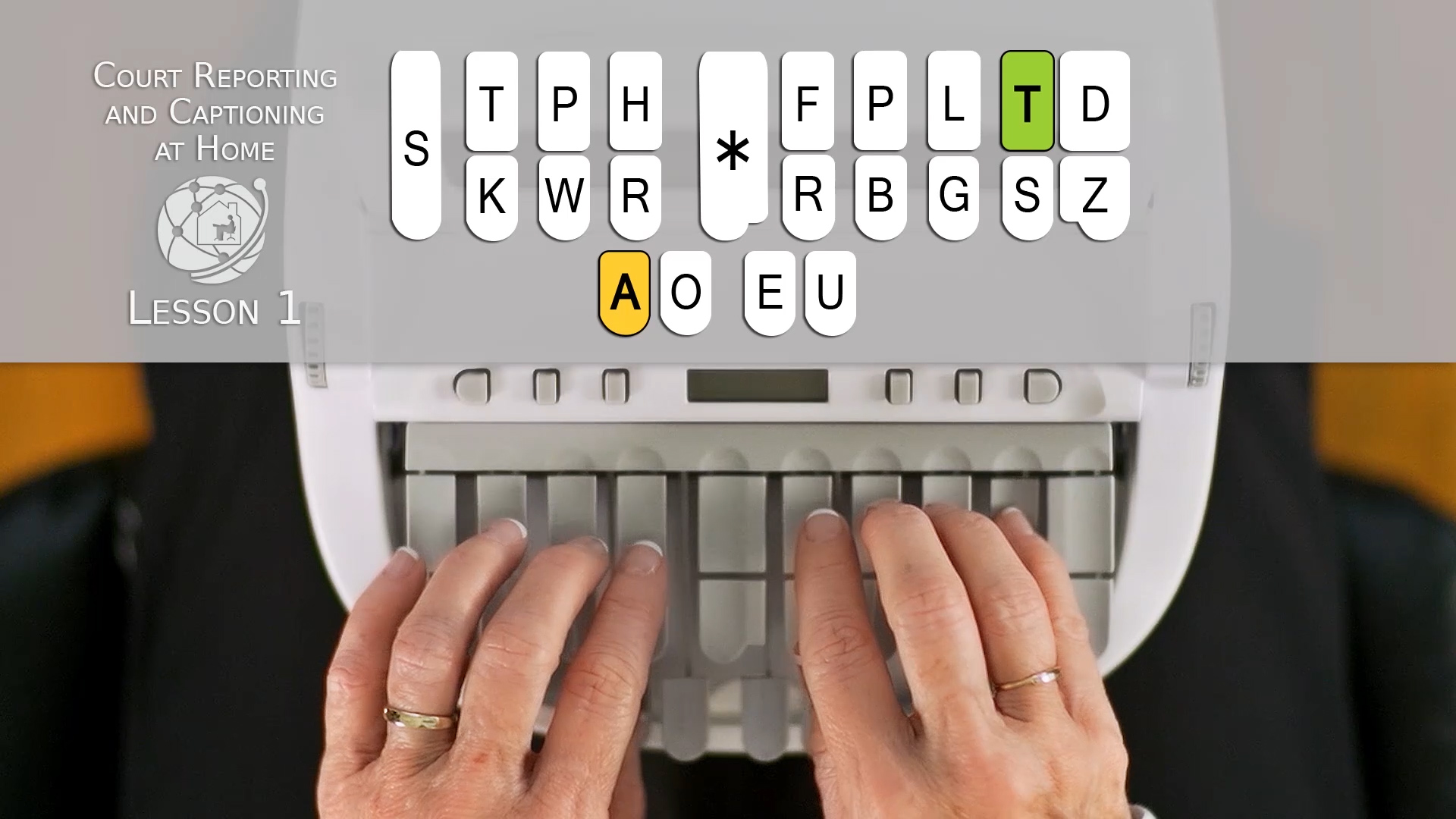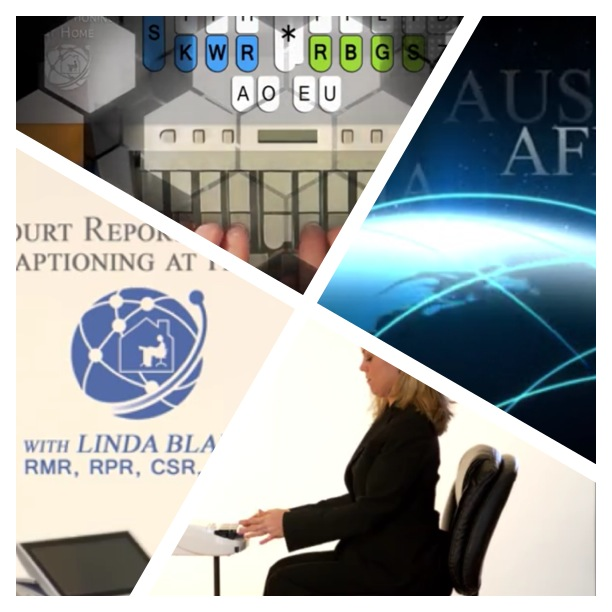
The “Realtime Reporting and Captioning Theory” is the only theory developed specifically for online, home study students, and although the NCRA no longer offers an approval process for theories, it was approved by the NCRA in 2003 and may be found on their website clearinghouse for theories. Theory is how we learn to write on the steno machine. The unique concept of this theory provides the student with a realtime writing foundation for Court Reporting, Broadcast (closed) Captioning, and CART Providing.
The COLOR CODED theory manual was developed over a four-year period, and it is written to allow students to easily understand the terminology and make progress each day. It is the only theory correlated with a VIDEO TUTORIAL to illustrate everything the student needs to see, i.e.: How to attach the tripod to the steno machine, proper height of the steno machine, proper posture, where to place each finger on each key, and how to write each of the 20 theory lessons! It’s like having your instructor sitting next to you. This theory contains Options! Options allow students to choose the method that works best for them, ensuring all students can complete theory. Students with prior training do not have to devote time to anything in which they are already proficient or that they have taken previously.
There are 20 Studio-Produced, Animated Graphic, VIDEO tutorials, which are viewed on the Student Platform, each correlated with a hard copy lesson found in your Theory Manual, supplemented with an audio file on the Platform for students to practice. When the lesson is accomplished, there is a short written test at the end of each lesson.
 Whether you’re brand new to court reporting, captioning, and CART Providing or whether you’ve had prior training, Court Reporting and Captioning at Home has a program for you. Our website is designed to provide the prospective student with as much information as possible about our Court Reporting, Captioning, and CART Providing programs, i.e.: theory, academics, support, speed building, student CAT software, internship, and job placement for each career. After reading about our realtime training programs, please call or e-mail, and one of our professional staff will be happy to answer any questions you may have.
Whether you’re brand new to court reporting, captioning, and CART Providing or whether you’ve had prior training, Court Reporting and Captioning at Home has a program for you. Our website is designed to provide the prospective student with as much information as possible about our Court Reporting, Captioning, and CART Providing programs, i.e.: theory, academics, support, speed building, student CAT software, internship, and job placement for each career. After reading about our realtime training programs, please call or e-mail, and one of our professional staff will be happy to answer any questions you may have.